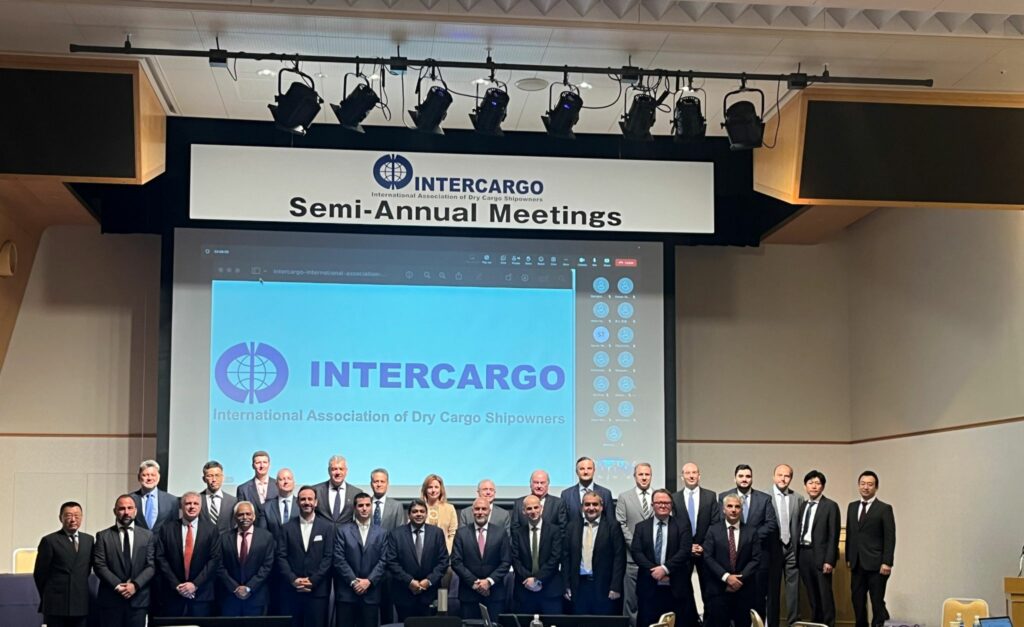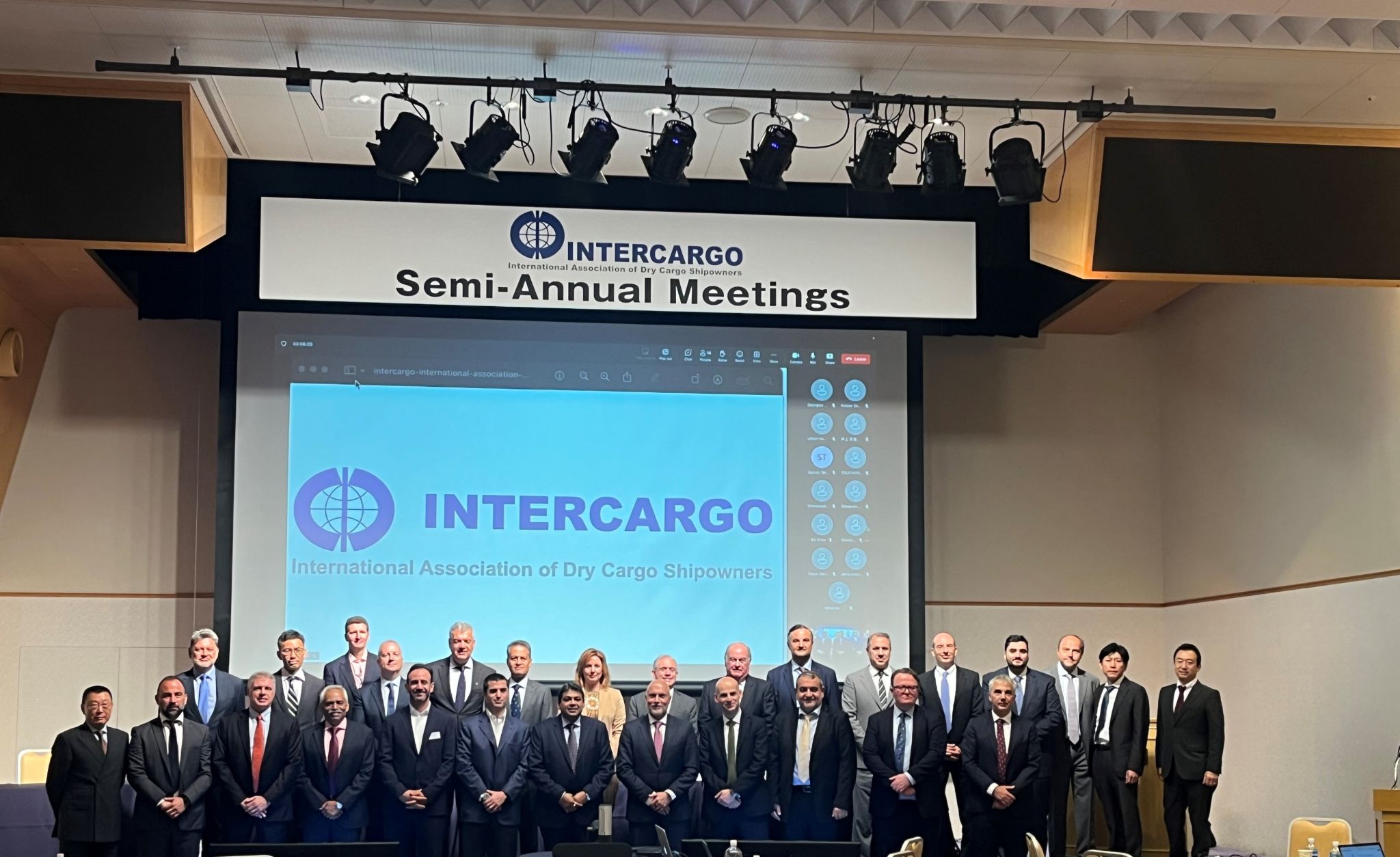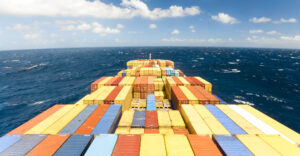
Photo credit: Intercargo
Dry cargo shipowners warn that the Carbon Intensity Indicator (CII) needs to be changed. Intercargo, the International Association of Dry Cargo Shipowners, said its members while they are supportive of the IMO’s decarbonisation aims, they expressed serious concerns that “the CII, in its current form, will unfairly penalise the sector.”
Intercargo’s members, which represent about one-third of the global dry bulk fleet tonnage, feel very strongly that the CII, in its current format, needs a fundamental reconsideration to account for the operating conditions in the sector.
In its recent semi-annual meeting in Tokyo (20-21 May) high on the agenda were quality, sustainability, GHG emissions’ reduction, and particularly the CII rating system.
The location of Tokyo was chosen specifically to highlight the importance of Japan to the dry bulk sector.
Numerous members and guests from both Japan and abroad attended the Association’s functions.
Intercargo’s Executive Committee and Technical Committee discussions focused on issues affecting the dry bulk sector.
Dimitrios Fafalios, chairman of INTERCARGO said: “The issue of the CII again featured heavily in discussions with members at our meetings in Tokyo. INTERCARGO’s members feel very strongly that the CII, in its current format, needs a fundamental reconsideration to account for the operating conditions in our sector.”

Photo credit: Intercargo / Dimitris J. Fafalios Intercargo Chairman
Mr Fafalios added: “While we are, of course, supportive of the IMO’s environmental aims, they must be enforced in a fair and equitable manner across the maritime spectrum. They also need to be applied in way that is not potentially damaging to the shipping industry, as well as to avoid the wider adverse effects on economies and on end consumers.”
Also prominent on the agenda of Intercargo in Tokyo were discussions on safety & quality operations; Intercargo’s messaging via ESG; recommendations on Port State Controls; and macro-economic impacts on the dry bulk shipping, such as conflicts leading to re-routing of vessels and increased insurance costs.



